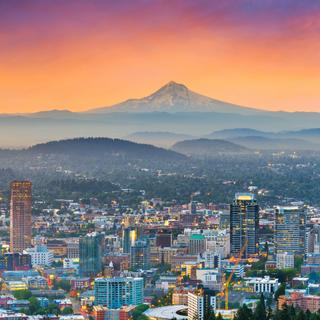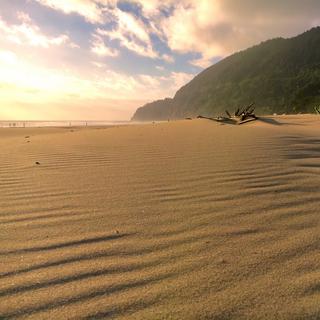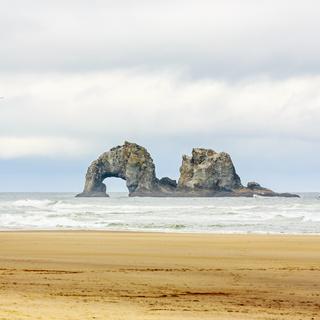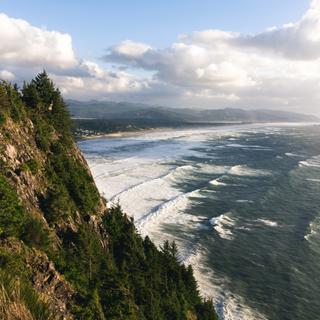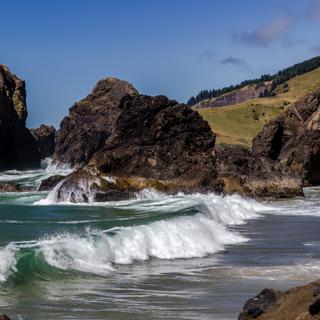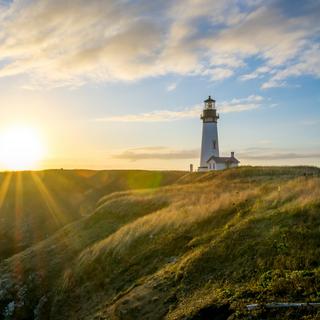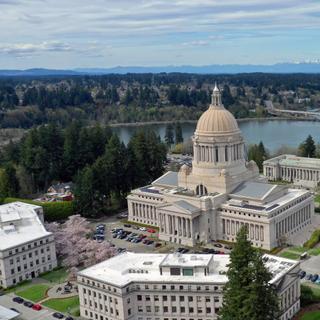Vancouver, WA weather and climate in 2026
Day
11 °C
Night
2 °C
Sea
10 °C
Precipitation
117 mm
in month
Rainy days
16 days
in month
Daylight
10 hours
average
Sunshine
4 hours
average
Humidity
78 %
Weather charts for Vancouver, WA
Find more destinations like this
Closest destinations for Vancouver, WA
Closest cities for Vancouver, WA
Weather overview for Vancouver, WA
Weather overview
Vancouver, Washington, USA is characterized by a temperate oceanic climate, ensuring mild, wet winters and warm, dry summers. Diligent rain from November through March transitions into beautiful blooming springs. While summer is luminous with thriving wildlife, autumn welcomes a gentle cool-down. Precipitation is abundant during the cooler months, with total rainfall decreasing significantly as warmer months approach. Vancouver boasts a distinctive seasonal charm, with year-long opportunities for locals and visitors to appreciate its temperate weather conditions.
January weather
January in Vancouver brings chilly winds with the promises of a fresh new year. With average daytime high temperatures reaching 8 °C (46 °F), it’s truly the heart of winter. January is part of the wet season, sprinkling the city with an average of 19 days of rainfall and approximately 170 mm (6.70 in) of precipitation. The cooler night temperatures average around 1 °C (34 °F), inviting you to enjoy cozy evenings indoors.
February weather
February sees a subtle increase in temperatures with average highs reaching 11 °C (51 °F), signaling the slow retreat of winter. The city still experiences the aftermath of the wet season, with rainfall on 16 days and an average accumulation of 117 mm (4.61 in). As the city anticipates the bloom of spring, nights remain brisk at an average of 2 °C (35 °F).
March weather
March is when Vancouver hints at spring, with average high temperatures of 13 °C (56 °F) and a decreasing trend of rainfall with only 18 days of rain expected. The transition to drier months starts here, with a total of 114 mm (4.50 in) of precipitation. Night temperatures mildly increase to an average minimum of 4 °C (38 °F), while breezy winds with an average speed of 3 m/s, refresh the air.
April weather
April offers a noticeable shift towards warmer days in Vancouver, with average highs at 17 °C (62 °F). The number of wet days drops to 15 days, and total rainfall decreases to 83 mm (3.25 in). Nighttime lows average around 6 °C (42 °F), and wind speeds mellow out to 3 m/s. Sun begins to grace the skies more frequently, tallying up to 7 hours per day, on average.
May weather
May is the harbinger of summer vibes in Vancouver, with a pleasant average high temperature of 20 °C (68 °F) and a lovely dip in rainfall to 69 mm (2.70 in). It's an excellent time to explore the outdoors, buoyed by a further reduction in wet days to 12 days. Nighttime temperatures also increase, averaging 9 °C (47 °F), which suggests delightful evenings for leisurely strolls.
June weather
June in Vancouver, WA is when summer starts to settle in. Average high temperatures ascend to 23 °C (73 °F), painting the perfect picture for outdoor enthusiasts. The wet season drifts farther away with only 9 days of rain and a modest 48 mm (1.89 in) of rainfall. On average, you can bask in the sun for up to 10 hours daily. Night temperatures are comfortably warm at 12 °C (53 °F).
July weather
July shines in Vancouver, WA with peak summertime cheer. The city revels in average high temperatures of 27� °C (80 °F), while rain is almost an afterthought with a mere 4 days expected to be wet. Nighttime temperatures hover around a balmy 14 °C (56 °F). The breezes are gentle, averaging 3 m/s, and the days are at their longest and sunniest, offering 11 hours of pure sunshine.
August weather
August continues to bless Vancouver, WA with superb summer weather. Daytime highs remain at a toasty average of 28 °C (82 °F), and rainfall is sparse with just 4 days of wet weather on record. Summer nights are agreeable, with an average low of 13 °C (56 °F). The sun governs the skies for 10 hours on average, ensuring that summer’s glow persists through the month.
September weather
September inaugurates the gradual return to cooler days in Vancouver, WA, with a comfortable average high of 24 °C (76 °F), while nights begin to cool down to 10 °C (51 °F). The rain slowly creeps back, with 7 days experiencing wet conditions and a total precipitation of 42 mm (1.66 in). The winds pick up slightly, averaging 3 m/s, hinting at the change of seasons.
October weather
October in Vancouver brings a noticeable chill with average highs retreating to 18 °C (64 °F). The city prepares for the imminent wetter months with a rise in wet days to 13 days and an upswing in rainfall, totaling nearly 92 mm (3.61 in). The nights are cooler, averaging 7 °C (44 °F), and the winds are calm, blowing at an average of 2 m/s.
November weather
November acknowledges the swift approach of winter in Vancouver, WA. The temperatures cool significantly, with a daytime high averaging at 11 °C (52 °F). The city experiences the return of the wet season, with 19 days expected to be rainy and a hefty sum of 171 mm (6.72 in) of precipitation. Nighttime temperatures fall to an average minimum of 4 °C (38 °F), and the wind remains steady at 3 m/s.
December weather
December in Vancouver, WA is deeply entrenched in the winter season, with an average daytime high of 8 °C (46 °F). The atmosphere is laden with moisture, leading to 19 days of rainfall, and an impressive 170 mm (6.70 in) of precipitation. The cold night temperatures average at a low 1 °C (34 °F), and the limited sun exacerbates the winter feel with only 2 hours of sunshine each day.
FAQs
How should I dress for outdoor activities in Vancouver, WA during January?
Layering is key in January's cooler weather of Vancouver, WA. With a high typically reaching 8 °C (46 °F) and nights cooling down to an average of 1 °C (34 °F), it's wise to wear warm, waterproof jackets and insulated boots to stay comfortable outdoors.
What is the daytime temperature like in Vancouver, WA during February?
Daytime temperatures in Vancouver during February start to rise gently, creating a promising prelude to spring, with an average high of 11 °C (51 °F). It’s not yet warm, but it's more comfortable than the deep winter chill.
Does March in Vancouver, WA bring a significant change in weather?
March in Vancouver, WA is a month of gradual change, with daily temperatures rising to an average high of 13 °C (56 °F). While nights are still cool, the days become progressively warmer as winter eases its grip.
What weather changes come with April in Vancouver, WA?
April in Vancouver ushers in milder weather, with daytime temperatures warming to an average high of 17 °C (62 °F). The skies clear up more, and you can enjoy a significant increase in daily sunshine, with daylight enduring for approximately 7 hours.
How does the weather in Vancouver, WA feel in May?
May brings a beautiful prelude to summer in Vancouver, WA with average highs of 20 °C (68 °F). The warmth is accompanied by a noticeable uptick in sun hours and comfortable evenings with mild temperatures averaging 9 °C (47 °F).
Is June considered a warm month in Vancouver, WA?
Absolutely, June marks the beginning of warm weather in Vancouver, with average daytime highs of 23 °C (73 °F). It's an inviting time for all sorts of outdoor fun as the sun graces the city generously.
How hot does it get in Vancouver, WA during July?
July truly sizzles in Vancouver, WA, with temperatures soaring to an average high of 27 °C (80 °F). It's the peak of summer, so prepare to enjoy the warmth, whether it's at local parks, on a hike, or just basking in the sun.
What's the typical weather like in Vancouver, WA during August?
August in Vancouver, WA is characterized by beautiful summer weather, with a robust average high of 28 °C (82 °F). Pleasant evenings and ample sunshine dominate the month, making it ideal for all your summer plans.
Can we still enjoy warm weather in Vancouver, WA in September?
September maintains the warmth in Vancouver with an average high of 24 °C (76 °F). It’s the perfect extension of summer, offering a last hurrah for outdoor summer activities before the seasons shift.
What kind of temperatures can I expect in Vancouver, WA during October?
October marks the onset of autumn in Vancouver, WA, which translates to cooler temperatures with an average high of 18 °C (64 °F). This makes for crisp, beautiful days suited for enjoying the changing leaves and the crisp fall air.
Is November a cold month in Vancouver, WA?
As November unfolds, Vancouver, WA enters cooler territory with average highs of 11 °C (52 °F). It's a month when the chilling embrace of winter begins to be felt, signaling the time to bundle up in warmer clothing.
What are the typical day and night temperatures in Vancouver, WA in December?
In December, the chill of winter is palpable in Vancouver, WA. Daytime temperatures hover around 8 °C (46 °F), while the nighttimes dip to a cold 1 °C (34 °F). Standard winter attire, including warm layers and coats, will keep you comfy as the daylight shortens to just 2 hours.
We make the most from 40 years of historical weather data to predict the best weather conditions.
Deciding on where to go for a holiday is hard sometimes. Get inspired by the most popular destinations.
We aggregate data from combining multiple weather sources to ensure accuracy of the highest order.
